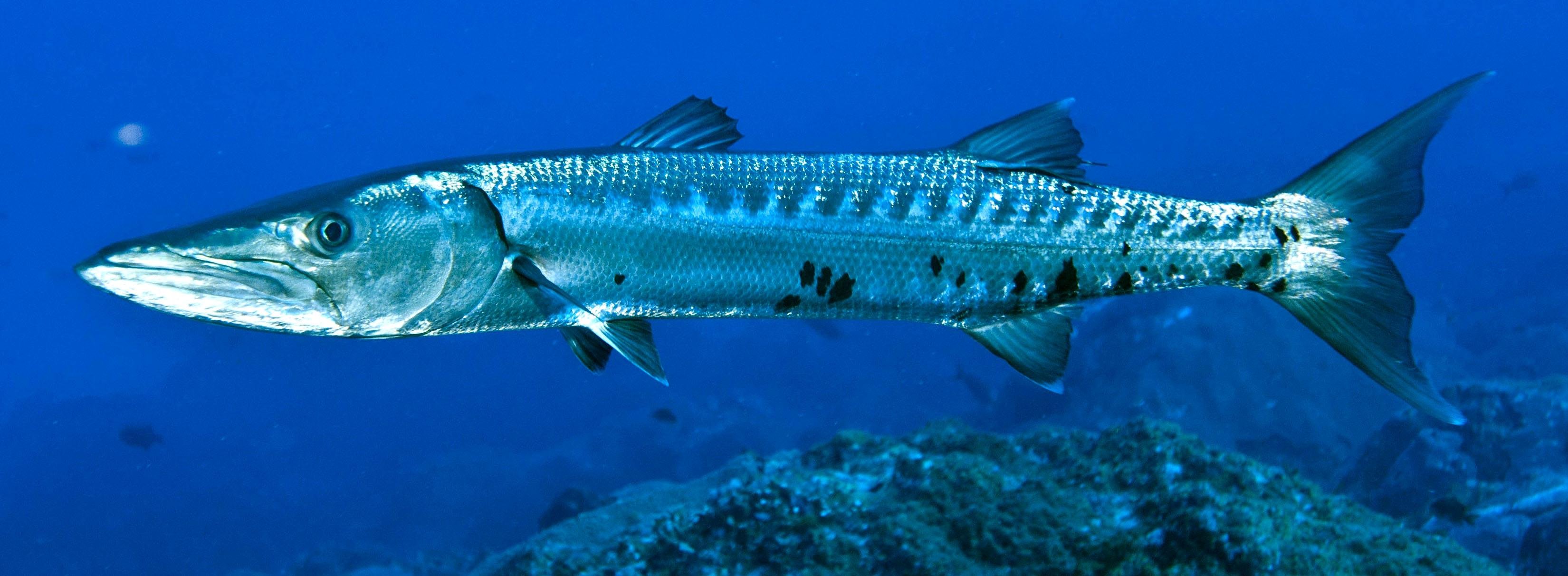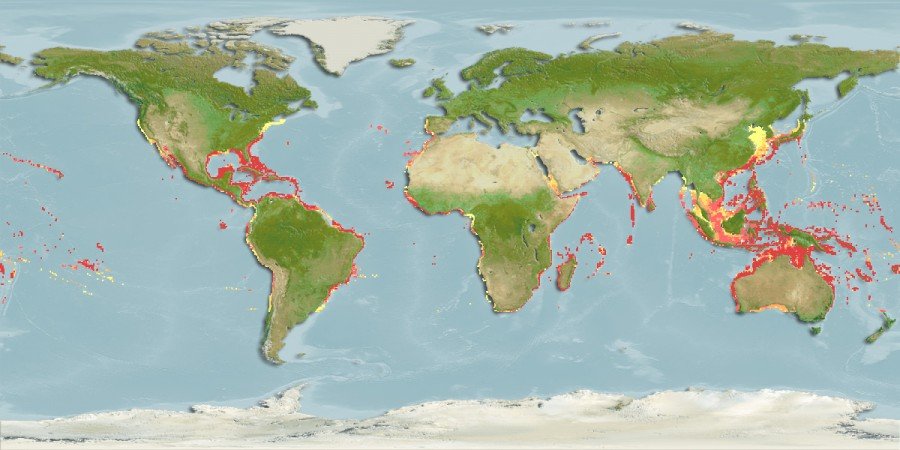The Great Barracuda is a ruthless and voracious predator which uses the ambush tactic to catch its pray with short burst of speed from 0 to 40-50 km/h in a split second it can annihilate any fish. Besides the speed it has pike-like appearance with mouth full of long and sharp teeth so when it catch its victim there is not much chance to escape. Barracuda is good fighter if it comes to fishing but because of its jaw artillery it's necessary to use proper leader lines.
Before you will see the video, a short information about this fish.
The Great Barracuda or Giant Barracuda (Latin: Sphyraena barracuda, Edwards in Catesby, 1771)

Classification
Kingdom: Animalia
Phylum: Chordata
Class: Actinopterygii (ray-finned fishes)
Order: Perciformes (perch-like fishes)
Family: Sphyraenidae (Barracudas)
Genus: Sphyraena
Species: S. barracuda
Distribution
Indo-Pacific: Red Sea and east coast of Africa to Hawaii and the Marquesas and Tuamoto islands. Western Atlantic: Massachusetts (USA), Bermuda, and throughout the Caribbean Sea to Brazil. Eastern Atlantic: Sierra Leone, Côte d'Ivoire, Togo, Nigeria, Senegal, Mauritania, St. Paul's Rocks, and São Tomé Island.

Size / Weight
Max length : 200 cm TL;
common length : 140 cm TL;
max. published weight: 50.0 kg;
Environment
Marine; brackish; reef-associated;
depth range 1 - 100 m; usually 3 - 30 m;
subtropical;
42°N - 35°S, 180°W - 180°E
Short description
Distinguished by the double emarginate tail fin with pale tips on each lobe, and (usually) the presence of a few scattered black blotches on the lower sides. Top of head between eyes flat or concave; mouth large.
Biology
Found predominantly at or near the surface. Juvenile occurs among mangroves, estuaries and shallow sheltered inner reef areas; adult occurs in a wide range of habitats from murky inner harbors to open seas. Diurnal and solitary, but can also be found in small aggregations. Feeds on fishes, cephalopods and sometimes on shrimps. Sold fresh. Utilized also dried or salted. Although this species is ciguatoxic elsewhere throughout its range, it has not been reported to be poisonous in the eastern Atlantic. Rarely attacks humans, usually with one quick, fierce strike, which, although serious, is rarely fatal. The world's record on hook and line is a 5.5-ft. fish taken in the Bahamas that weighed 103 lbs.
Supporting source: http://www.fishbase.org
Video
STEEManians I want to especially thank for supporting:
@gregbit @margaretwise @glitterfart @hilarski @anahilarski @thearcanebear @mynameisbrian @jga @choogirl @linzy13 @cecirod1218 @bibek @codypanama @donofa @fishdad
Here you can find some of my other posts/stories:
@edekadam/fish-facts-13-jeremy-wade-feat-the-king-salmon-video
@edekadam/fish-facts-12-jeremy-wade-feat-the-white-sturgeon-video
@edekadam/fish-facts-11-jeremy-wade-feat-the-giant-mekong-catfish-video
Thanks for checking my posts if you like it vote and leave follow :)


